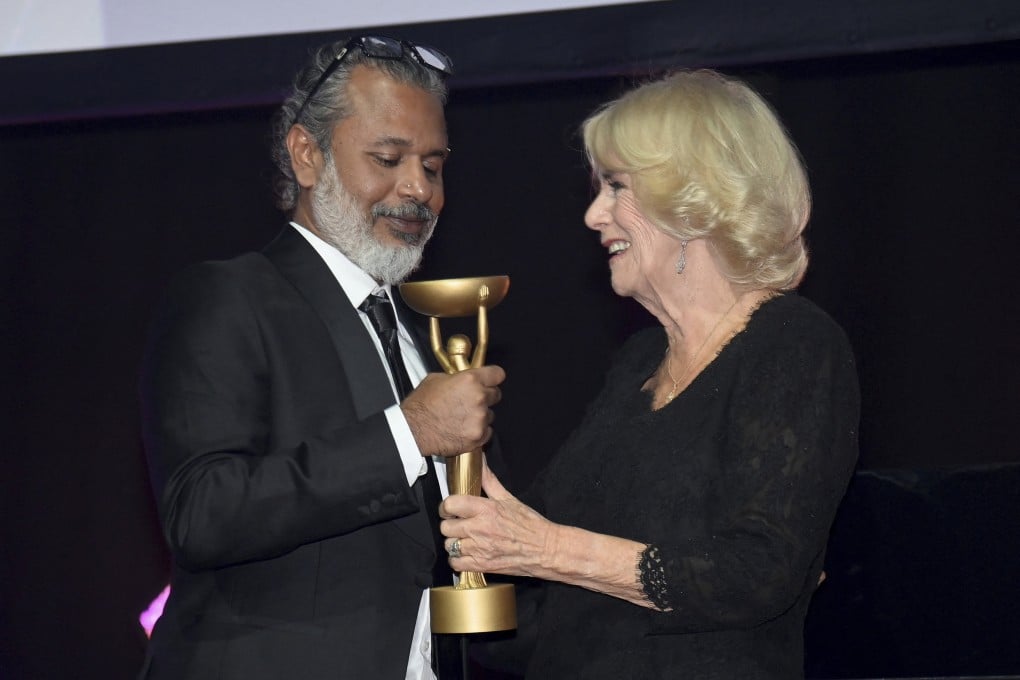Sri Lanka’s Shehan Karunatilaka wins Booker Prize
- The Seven Moons of Maali Almeida is a satirical novel set during the country’s civil war
- Karunatilaka is the second Sri Lanka-born winner of the prestigious award, after Michael Ondaatje, who took the trophy in 1992 for The English Patient

Karunatilaka, one of Sri Lanka’s leading authors, won the £50,000 (US$57,000) award for his second novel. The 47-year-old, who has also written journalism, children’s books, screenplays and rock songs, is the second Sri Lanka-born Booker Prize winner, after Michael Ondaatje, who took the trophy in 1992 for The English Patient.
Karunatilaka received the award from Camilla, Britain’s queen consort, during a ceremony at London’s Roundhouse concert hall.
The judges’ unanimous choice, The Seven Moons of Maali Almeida is the darkly humorous story about a deceased war photographer investigating his death and trying to ensure his life’s legacy.
Former British Museum director Neil MacGregor, who chaired the judging panel, said judges chose the book for “the ambition, the scope and the skill, the daring, the audacity and the hilarity of the execution”.
“It’s a book that takes the reader on a roller coaster journey through life and death, right to what the author describes as the dark heart of the world,” MacGregor said. “And there the reader finds to their surprise, joy, tenderness, love and loyalty.”